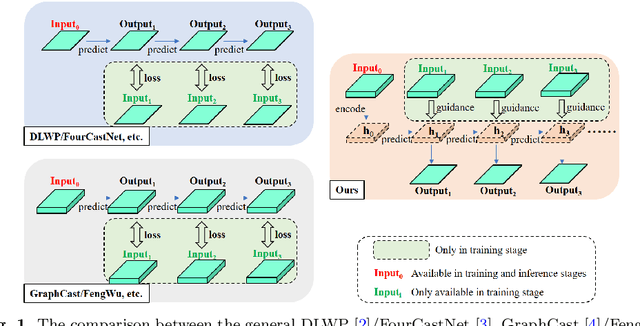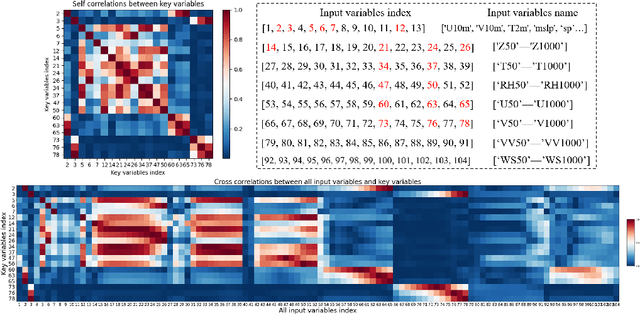Efficiently improving key weather variables forecasting by performing the guided iterative prediction in latent space
Paper and Code
Jul 27, 2024



Weather forecasting refers to learning evolutionary patterns of some key upper-air and surface variables which is of great significance. Recently, deep learning-based methods have been increasingly applied in the field of weather forecasting due to their powerful feature learning capabilities. However, prediction methods based on the original space iteration struggle to effectively and efficiently utilize large number of weather variables. Therefore, we propose an 'encoding-prediction-decoding' prediction network. This network can efficiently benefit to more related input variables with key variables, that is, it can adaptively extract key variable-related low-dimensional latent feature from much more input atmospheric variables for iterative prediction. And we construct a loss function to guide the iteration of latent feature by utilizing multiple atmospheric variables in corresponding lead times. The obtained latent features through iterative prediction are then decoded to obtain the predicted values of key variables in multiple lead times. In addition, we improve the HTA algorithm in \cite{bi2023accurate} by inputting more time steps to enhance the temporal correlation between the prediction results and input variables. Both qualitative and quantitative prediction results on ERA5 dataset validate the superiority of our method over other methods. (The code will be available at https://github.com/rs-lsl/Kvp-lsi)
 Add to Chrome
Add to Chrome Add to Firefox
Add to Firefox Add to Edge
Add to Edge